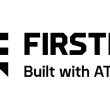Bay Area entities are asked for 700 MHz LTE commitments
Decisions regarding the public-safety 700 MHz wireless broadband system that Motorola plans to build for the San Francisco Bay Area are expected to be made this week by several key government entities, including the largest city in the region.
In August, the National Telecommunications and Information Agency (NTIA) awarded Motorola $50.6 million in Broadband Technology Opportunity Program (BTOP) federal grant money to build out the proposed 193-site LTE network for first-responder agencies in the region. In addition to the grant money, Motorola has agreed to provide matching funds equal to 30% of the BTOP grant.
But the project has been the subject of considerable controversy during the past four months, with the city of San Jose — the largest city in the region — and the county of Santa Clara being most outspoken about the procedures used to select Motorola as a private partner. They allege the following: that governments in the region have not been told of their financial obligations if they participate in the project; inappropriate actions taken by Bay Area Urban Area Security Initiative (UASI) staff; and that key documents have been signed on behalf of nonexistent entities without being voted upon.
Given the controversy, NTIA officials asked that regional entities provide written commitments this week. Last week, the office of Alameda County Sheriff Gregory Ahern — who is executive sponsor for the LTE project — asked each entity for verbal or e-mail commitments last week and a letter of intent to participate in the project by this Wednesday.
“Our timeline on this was put on us by the NTIA, based on issues with San Jose/Santa Clara,” Ahern said during an interview with Urgent Communications. “They wanted to make sure that we had a level of commitment in the area to make sure that this grant can move forward.
“The great majority of people are opting in. The issues are with San Jose and Santa Clara. We’re trying to resolve those issues.”
In response to the commitment request, Santa Clara County Executive Jeff Smith sent Ahern’s office an e-mail stating that the county “supports the ultimate goal of this project and intends to participate,” as long as none of nine statements — most of which are claims Smith has made previously — were true.
Ahern said that all of the items cited by Smith are untrue.
“All of those allegations have been [vetted] out, investigated and proved to be inaccurate,” Ahern said. “Nothing inappropriate took place.”
Despite this, Ahern said that he is interpreting Smith’s response as an indication that Santa Clara County does not want to participate in the project at this time.
“Because your statement is conditioned upon allegations regarding other participants in this process, you’re conditions are rejected,” Ahern said, reading the written response that was sent to Smith. “Since I’ve rejected your conditions, I will assume that Santa Clara is not presently interested in participating in this program. Therefore, we will carry forth without your involvement. Should you amend your position at some later date, we’d be happy to discuss your re-involvement in the project. I look forward to that outcome.”
Ahern said that he believes that Smith’s response the request for commitment was “inappropriate.”
“We’re looking for a level of cooperation,” Ahern said. “If you want to send a letter of intent saying to us that you want to participate, we’d love to have you. But, at this time, from the tone of [Smith’s] letter and the actions that [he has] taken, we’ll move forward with the others in the area.”
San Jose’s City Council will meet tomorrow morning to determine that city’s response to the commitment request. Citing several concerns with the current 700 MHz LTE project, the San Jose city staff has recommended that the council ask NTIA to reallocate the BTOP grant money to the Bay Area region, instead of to Motorola. The staff recommendation calls for support of the overall concept of an interoperable public-safety network, but it also calls for “guiding principles” be followed regarding the procurement process, distribution of information to governmental entities, and the use of open-source standards in the LTE network.
In a related item, the Bay Area UASI Approval Authority today was scheduled to consider an item that would “affirm” the allocation of $6.2 million in UASI grant money to the East Bay Regional Communications Systems Authority (EBRCSA) to pay for Project Cornerstone, the 10-site LTE pilot project for the larger BTOP-funded system.
The UASI Approval Authority voted to use UASI grant money for Project Cornerstone and approved the request for inquiry that started the effort in the fall of 2009, but it has not voted on any items related to the pilot project since then. In the interim, the EBRCSA — at the request of UASI Executive Director Laura Phillips, according to the minutes of an EBRCSA meeting — approved a contract with Motorola for the buildout of the Project Cornerstone network in June.
Officials for San Jose have expressed concern that Phillips promised EBRCSA full reimbursement for Project Cornerstone and pursued a contract with Motorola for the project without first consulting the Approval Authority and receiving permission from the UASI governing body.
Related Stories
















